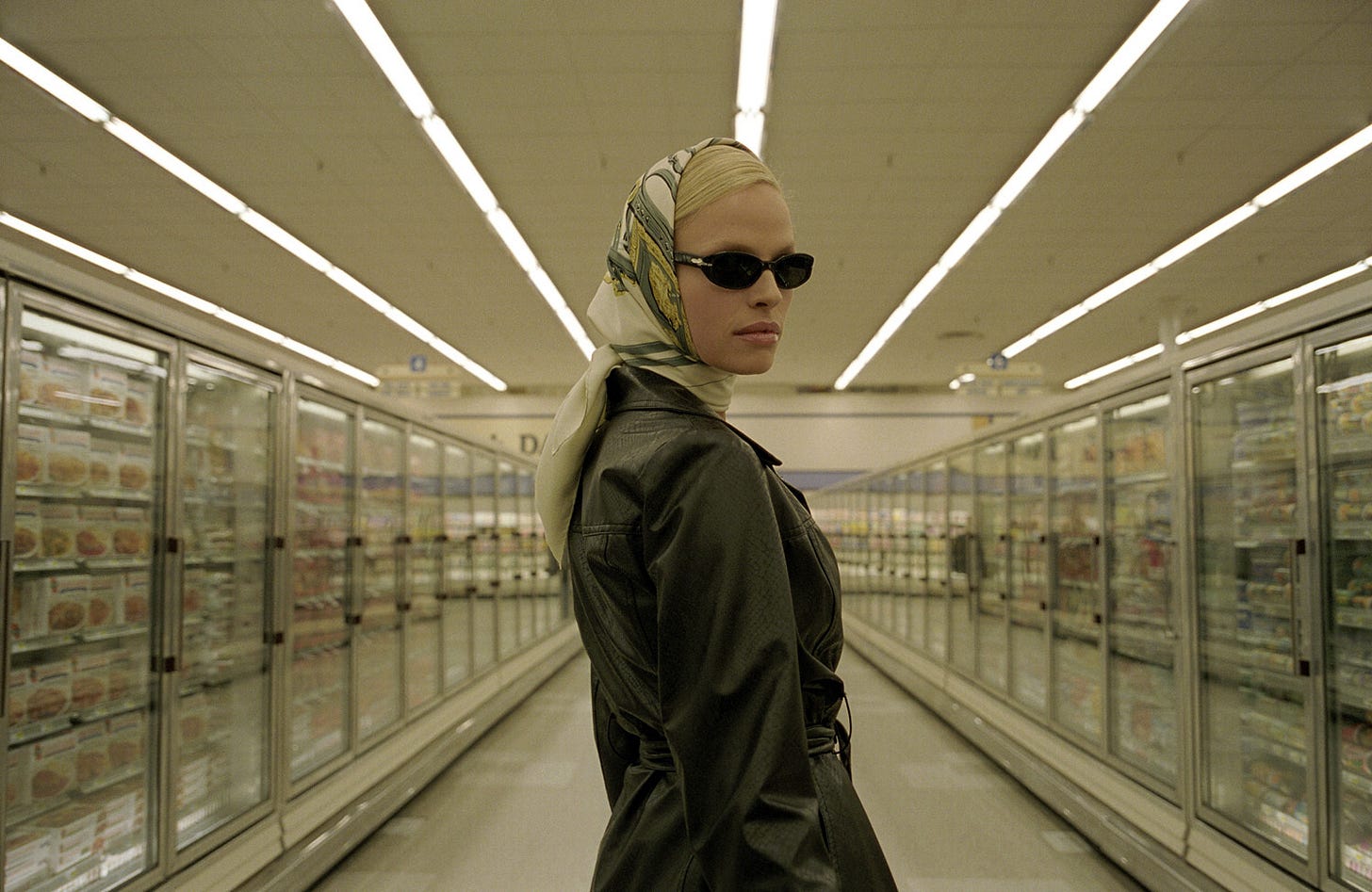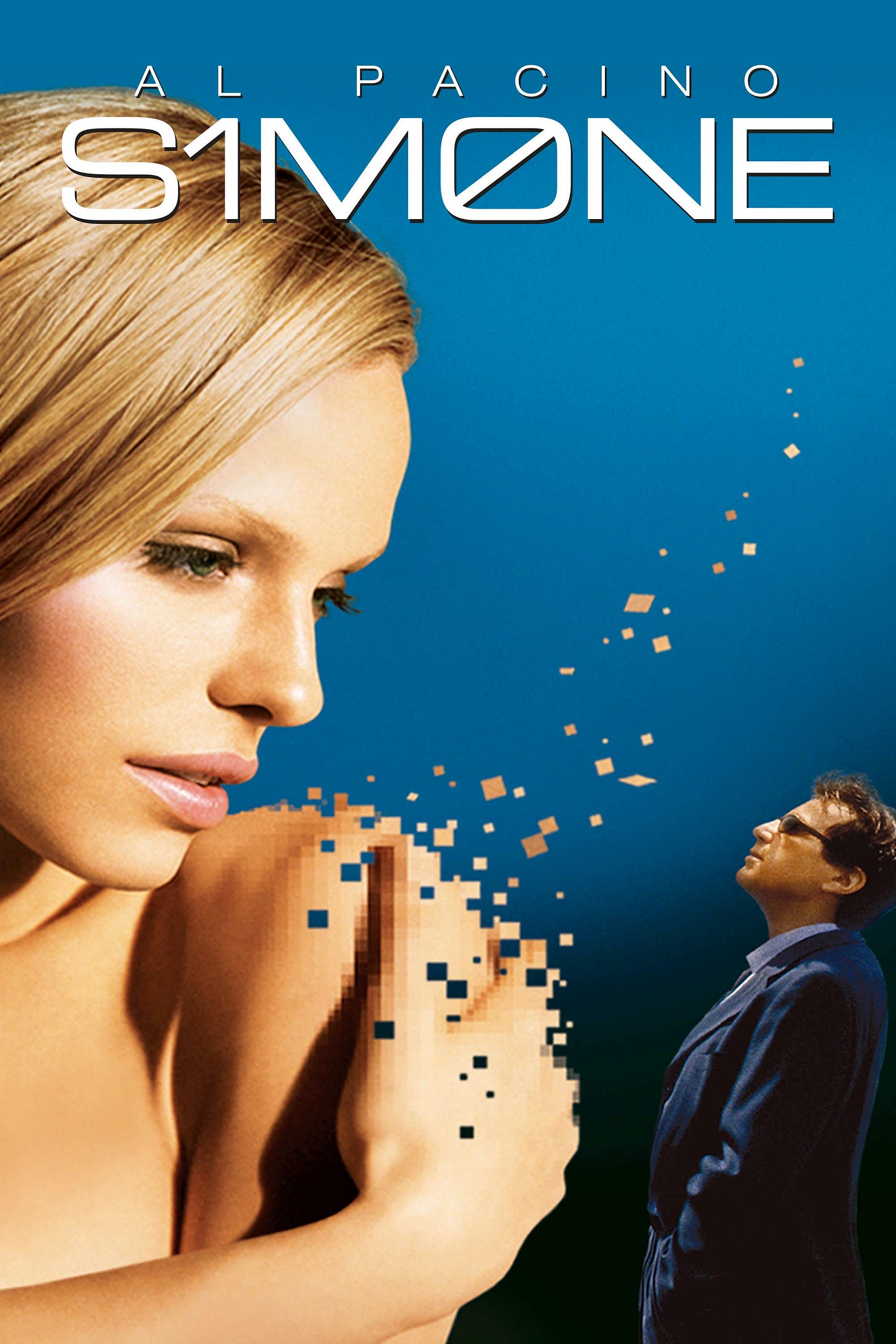Guest post alert! Today’s newsletter is brought to you by my screenwriter in arms Ryan Kindahl, whom you might remember from his excellent second-person narrative about Dark City last fall. Since then, Ryan has launched his own Substack that shares a name with his production company, and he’s been writing on the joys (and struggles) of watching and making movies. His latest post is all about video stores, so obviously he’s right at home here at Dust On The VCR. Even though today’s topic is more concerned with the future of film than the past. Anyway. Take it away, Ryan!
One of my favorite subgenres of film is one that I’ve coined “feature-length Twilight Zone episodes.” I even have a curated Letterboxd list of them because I’m one of those guys. (If you have any suggestions, please drop them in the comments!)
Apart from M. Night Shyamalan, one of the best modern-day purveyors of this subgenre is writer/director Andrew Niccol. He made his debut in 1997 with Gattaca, the film where Ethan Hawke and Uma Thurman first met. Which, I suppose, means we can thank him for Maya Hawke! But I digress.
Though Gattaca was his feature debut, Niccol’s most well-known and successful film is The Truman Show, which he wrote before it was directed by Peter Weir. Essentially, The Truman Show is about a man who is real, but the world around him is artificial. Interestingly enough, Niccol would go on to invert that idea with his lesser-known 2002 film S1m0ne—the title character is artificial, while the world around her is real.
In the film, Al Pacino plays a producer named Victor Taransky, whose name is so fun off the tongue that every character has to recite it at least a dozen times within a scene. (It felt that way, at least.) When shoplifting-era Winona Ryder drops out as the lead actress in his film, Victor is given the opportunity to replace her with an artificial actress that he affectionately names Simone.*
S1m0ne has seen a small resurgence in the wake of the recent advances in AI and last summer’s SAG-AFTRA negotiations pertaining to it. Like some of the best writers of soft science fiction, and The Twilight Zone specifically, Niccol has a knack for seeing around the corner. 22 years since the film’s premiere, we’re on the eve of this story becoming a reality.
Though S1mone could have been told in a myriad of ways, it’s framed from the perspective of an auteur director working within the Hollywood system—a world which Niccol knows well, and likely one he has many things to say about. As a writer/director myself, I could somewhat relate to Victor’s character and even his plight.** Like most directors, he believes that nothing matters more than his artistic vision. We meet him at his lowest point, catering to every whim of a prima donna lead actress and kowtowing to studio executives until ultimately he’s left in the lurch. Who could blame him when he jumps at the chance to play God?
Filmmaking is hard, and often brutal. Especially within the confines of the Hollywood machine. If you don’t believe me, talk to any director. Better yet, try making a film yourself! My team and I are living it as we speak.*** It can be incredibly alluring to have the ability to fully render your artistic vision with some simple computer commands—a few keystrokes, even. As a creative, your story is seemingly perfect in your head and on the page, but then comes the reality of getting it made. You’re constantly making concessions and compromises.
In S1m0ne, Victor is done with making concessions. He’s able to tweak Simone’s performance with a computer by incorporating qualities from history’s most famous actresses—a little bit of Audrey Hepburn, a dash of Glenn Close. There’s a century’s worth of filmed performances to pull from. Sound familiar? For those paying attention, Sora, Open AI’s text-to-video modeling program, made its debut earlier this year.
The ability to have full control over an actor’s performance is likely a dream for some directors. There are those that are notorious for how rigid they are with their blocking and how they want their dialogue performed in a particular way.**** Personally, I don’t subscribe to that school of thought. I think the magic of filmmaking is in the collaboration—the spontaneity of multiple individuals bringing their own ideas and life experiences to a story. It’s the flexibility of seizing on an idea in the moment and rolling with it.
Can an artificial actor truly improvise? I suppose the closest it could come is basically a shuffle button for an endless number of performance permutations. But it could never truly spark an idea from its subconscious. It could never pull from the emotional depths of a life well lived. At the end of the day, it’d be parroting—and parroting well. There’s no magic in that. In fact, the saddest shots in the film are when Pacino is sitting alone in a big, empty soundstage orchestrating Simone’s performance from his computer editing station.
Ultimately, I think the story of how S1m0ne was made is more interesting than the film itself. Early on, the producers were considering making the character of Simone completely CGI. However, SAG opposed it, claiming that it would open the door for all actors to eventually be replaced by artificial ones. The marketing team stuck to this strategy, however, by keeping the identity of the actress that played Simone—Canadian model Rachel Roberts—a secret. The titular character was initially credited only as Simone, as if she was playing herself in the film. After making the film together, in an ironic twist of life imitating art, Niccol ended up divorcing his wife and marrying Roberts! (They’re still together 22 years later.)
Is S1m0ne a good film? I can’t say that it is, but it poses some interesting questions. And it could be ripe for a remake, or even an episode of Black Mirror. Now that the AI revolution is at our door, I think there’s more to say. Do we want films touched by just one human hand? Or, worse yet, generated by a prompt?
Not me, pal. Not me. Give me the messy imperfections of human art any day. Like Al Pacino out of place in a dull-edged satire. I’ll watch that.
*Jeremy here. I would just like to let Winona Ryder know, if she’s reading this, that I did not approve of Ryan’s rude shoplifting comment and I hope we can still work together in the future.
**My creative partner Dan King and I are currently in pre-production on our first feature. You can read more about it over at the Substack for our production company, Obsolete Media!
***I’m sure Jeremy will talk your ear off about the challenges he and his team faced when making Don’t Die.
****Stanley Kubrick, David Fincher, and the Coen Brothers all come to mind. Even Hitchcock once famously said that “actors are cattle.”
S1m0ne is now streaming on Tubi and Kanopy, and it is available to rent elsewhere.





I remember seeing this when it came out. Didn't leave much of an impression, but I'll revisit it. This was peak late-career Pacino, so I think we all expected more. Yet I did enjoy it much more than Her, which I thought was slow and pretentious.
Oooooh really enjoyed this. I’d take that sloppy human art any day, as well. There are tons of friends of mine in the writing world that are terrified of losing their jobs to this so the reality is very close to home.